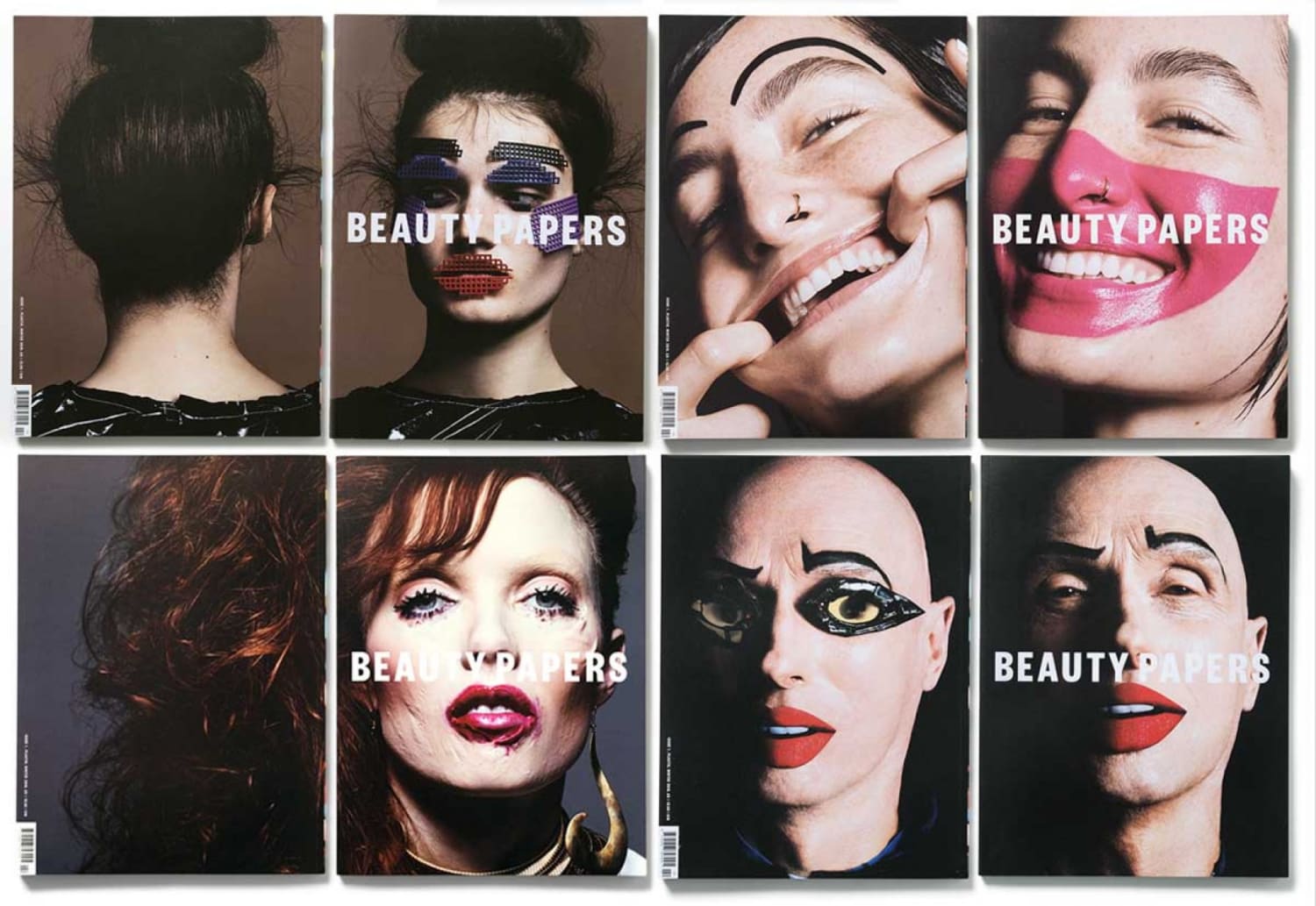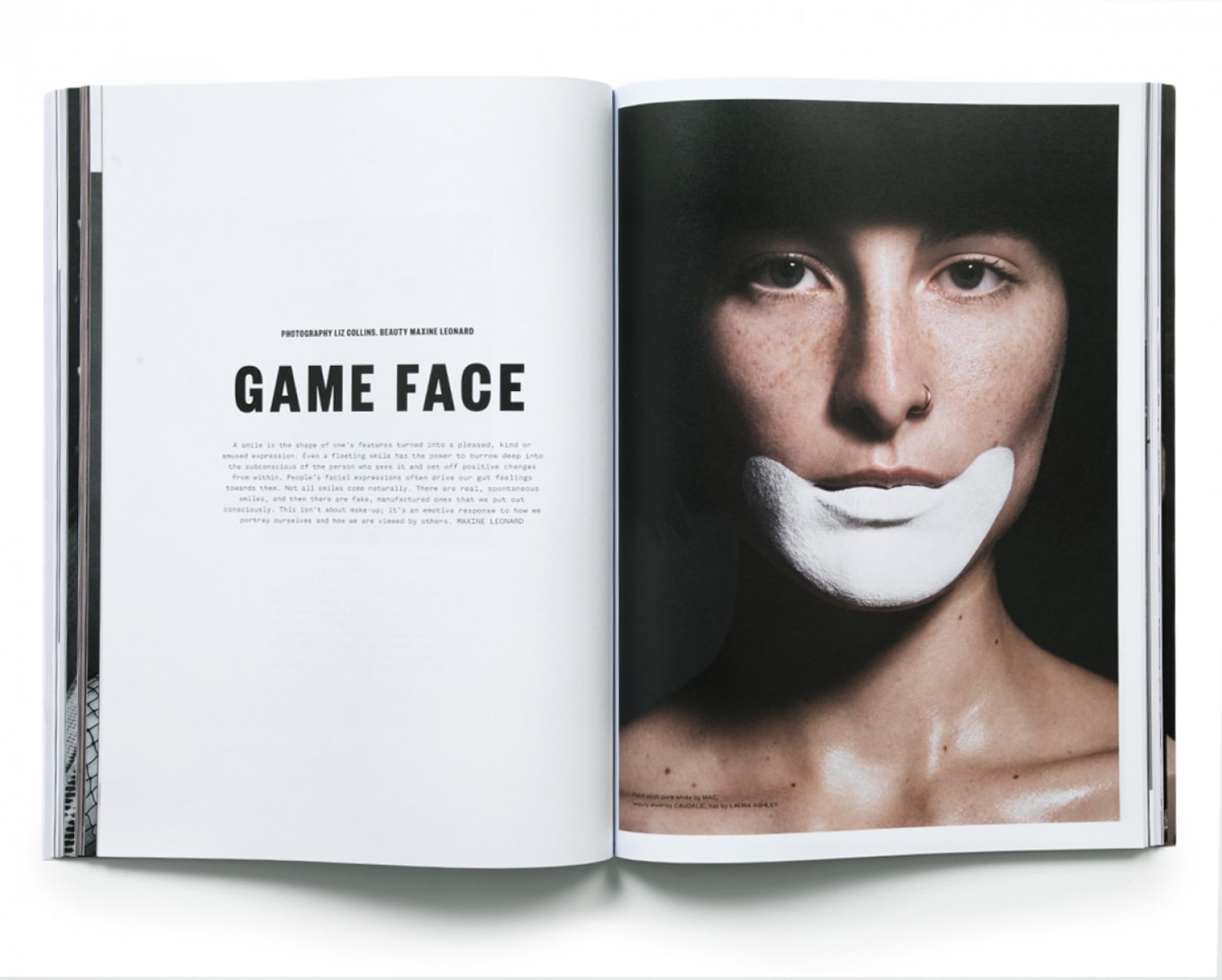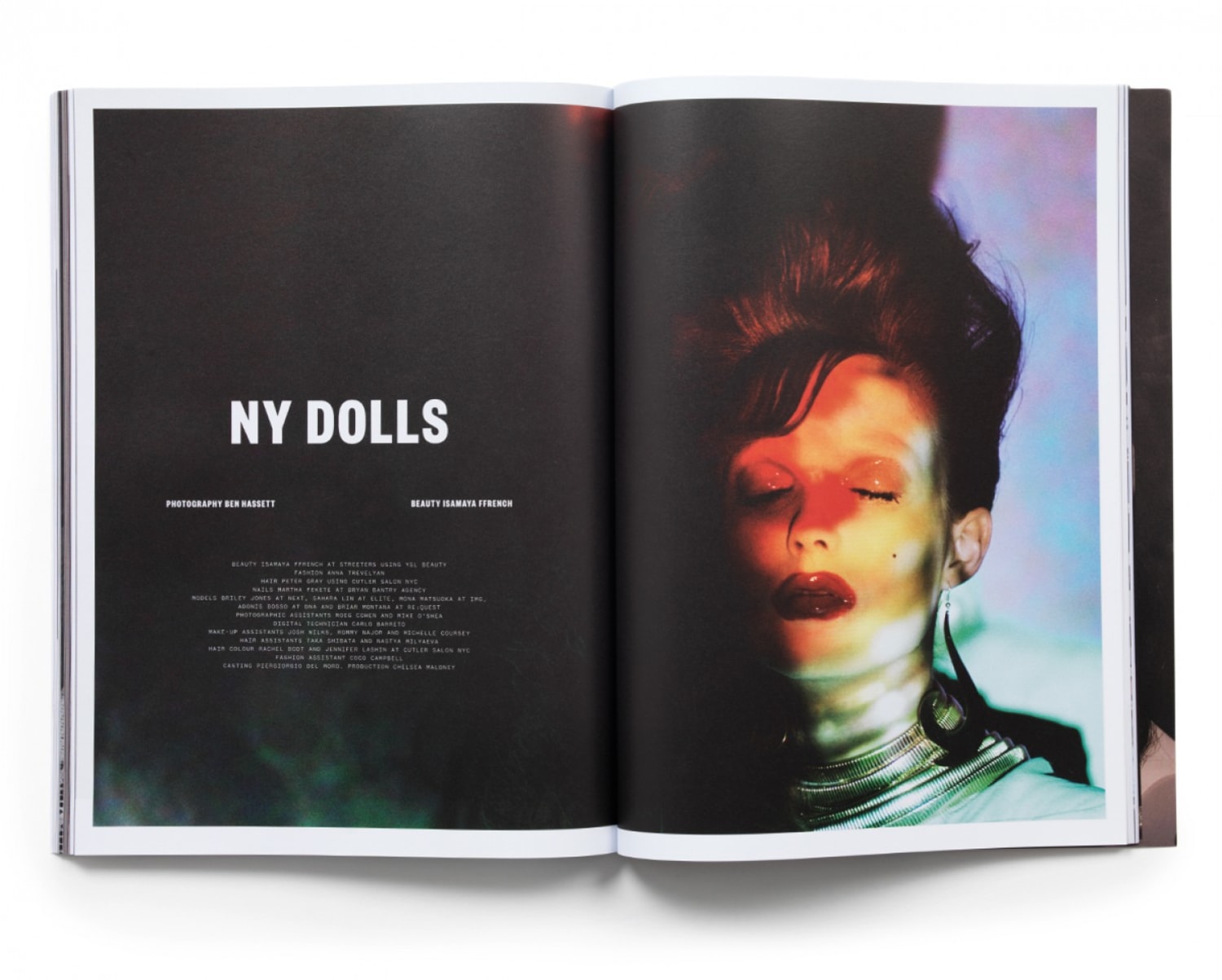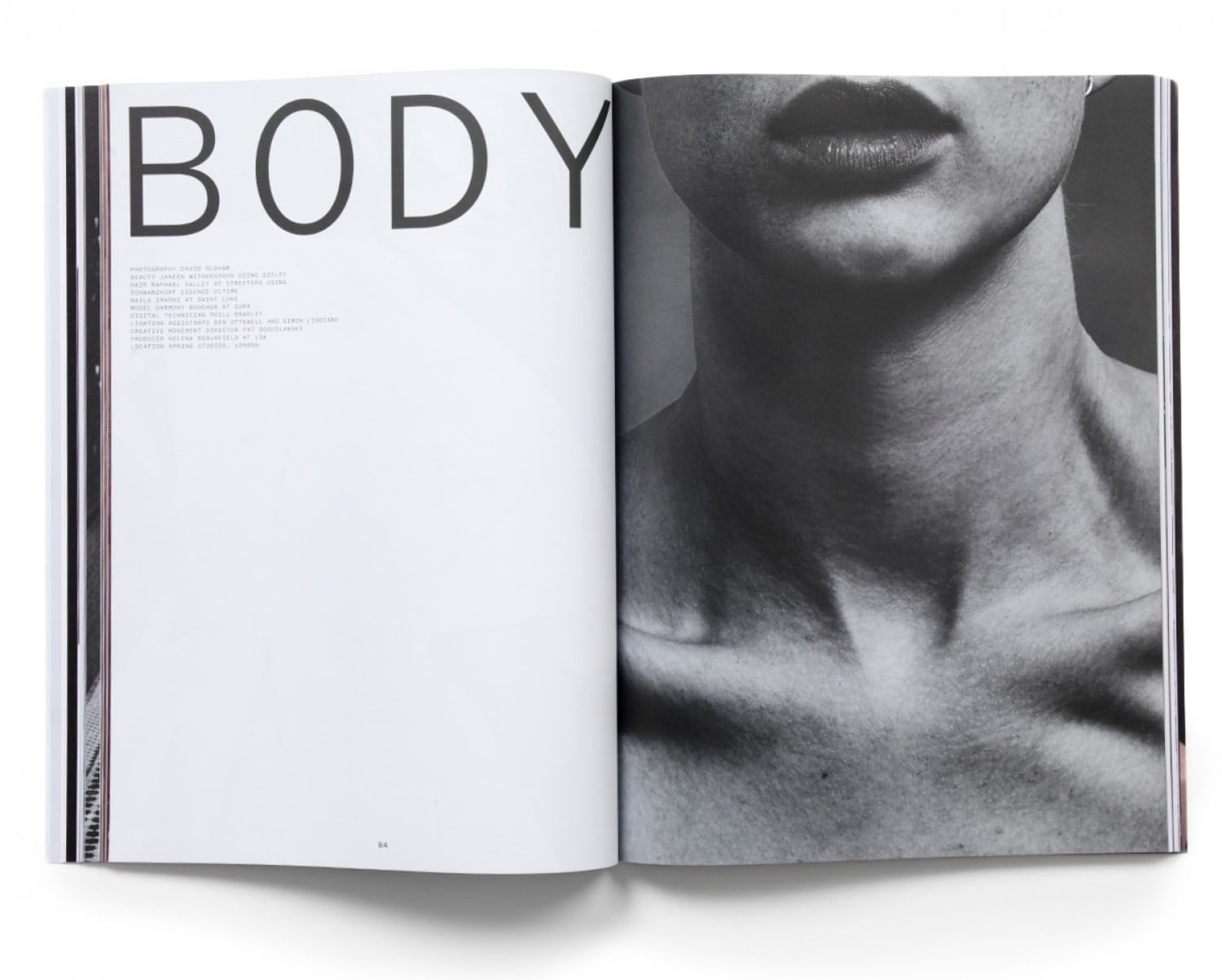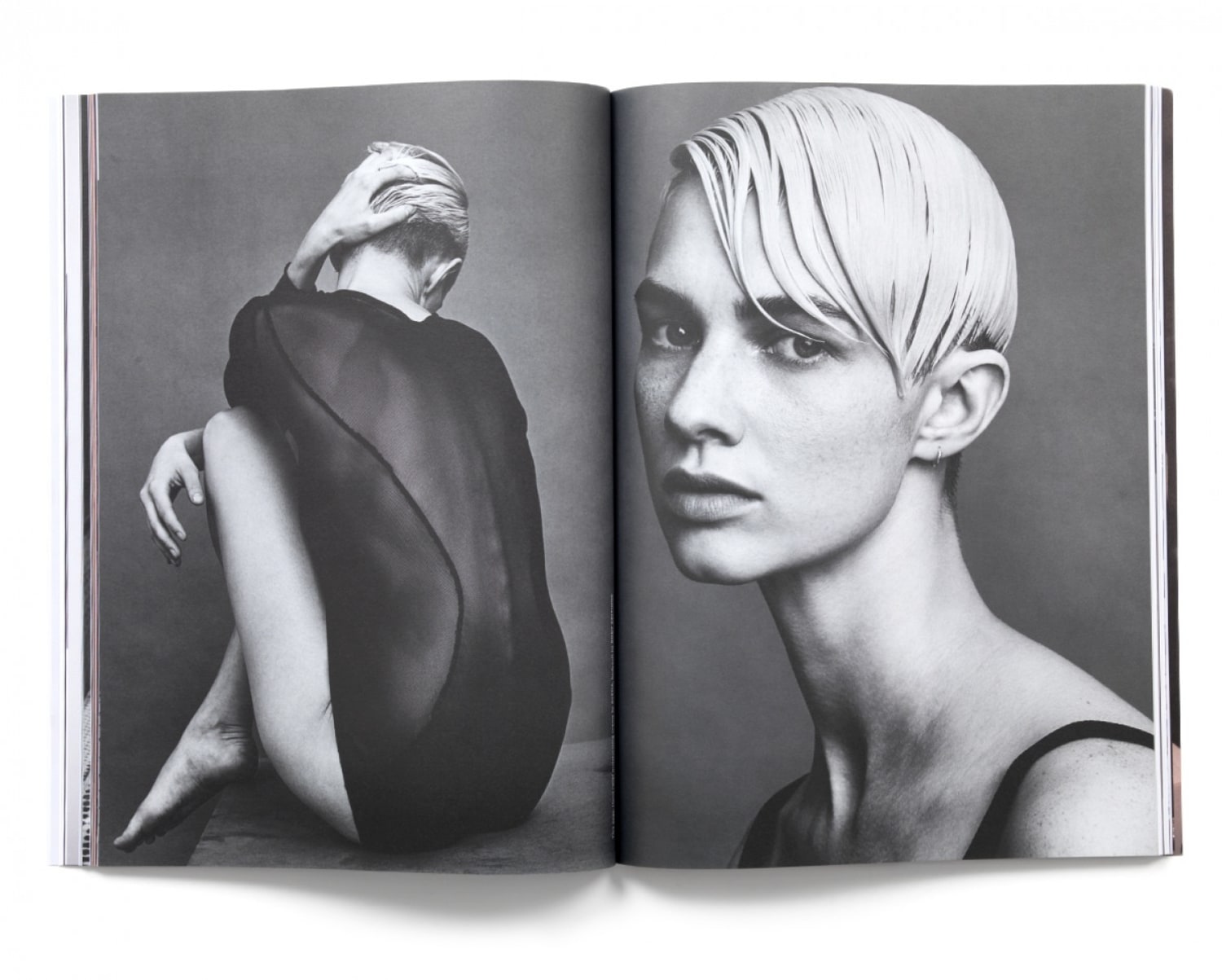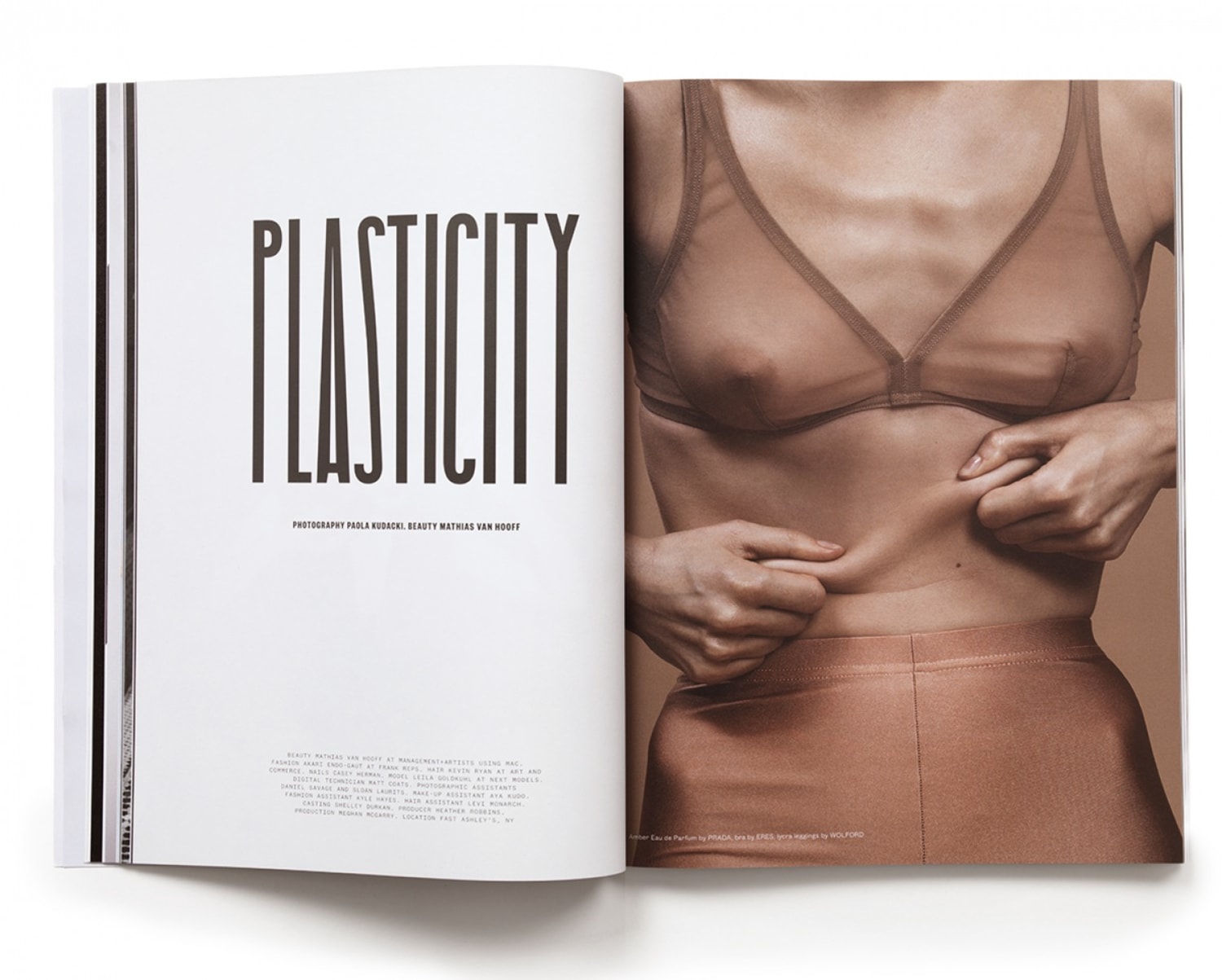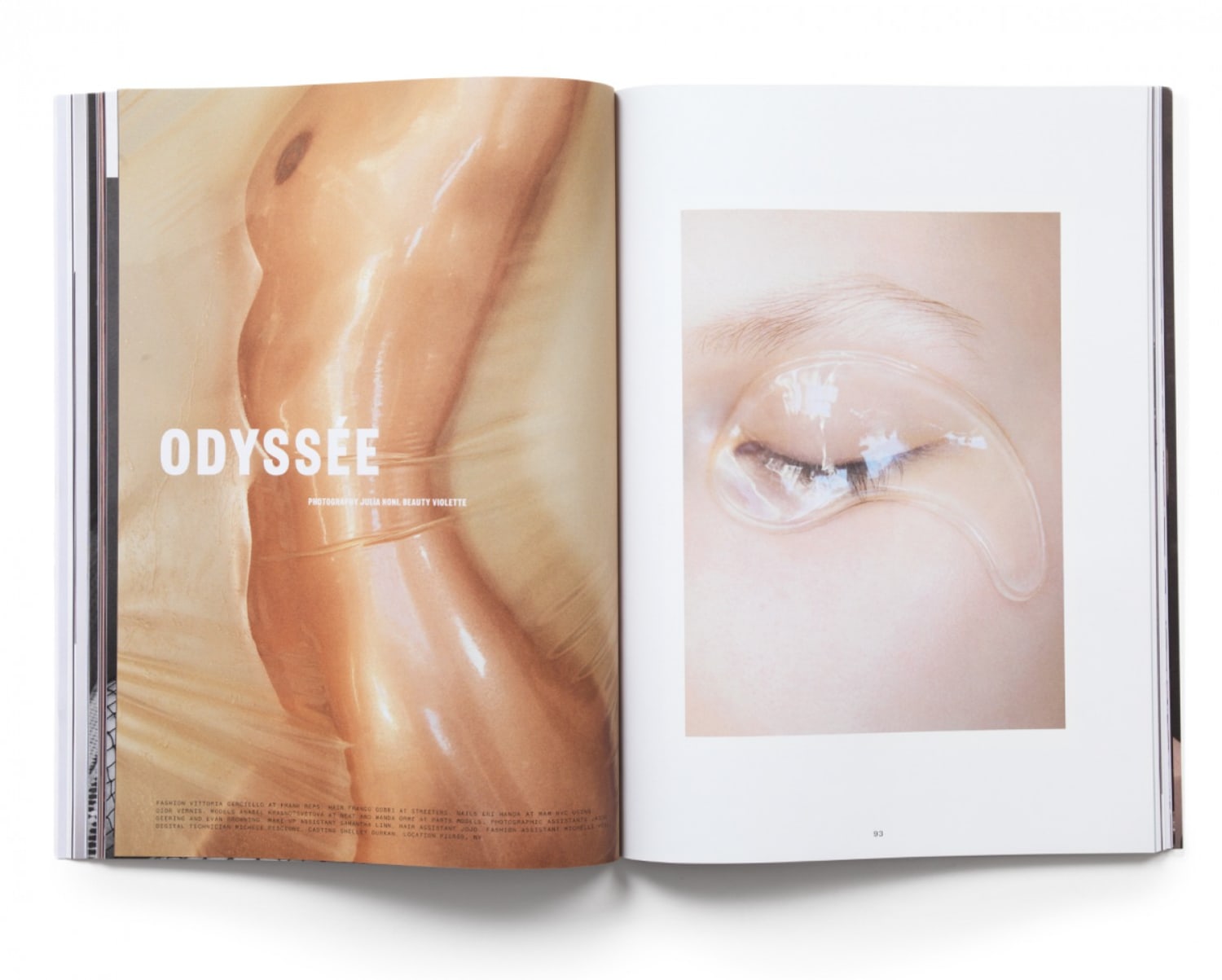It’s interesting that you use the word “political” alongside “beauty,” because that’s probably the last word I would associate with the beauty industry.
ML: That’s because it’s not the message you’re being fed daily. I’m not saying we need to be scrubbed bare—I do believe imagery should be aspirational—but I also believe our industry has a responsibility. And it’s an important one.
What significant changes have you observed in the beauty industry over the course of your career?
VW: The creative balance you had before in terms of beauty was less celebrity driven, and as a result it was more diverse. Now, the way women or even men are being presented is becoming homogenized: one look. Where’s the diversity that was previously there? We felt things were getting narrower. Creatively, that made things more restricting, but also culturally, lack of diversity has a massive impact, and that’s not good.
ML: Social media has influenced and affected our idea of beauty. Instagram, for example, is quite an incredible vehicle, but I think it’s also very disruptive. We are fed imagery every day, and we are overloaded with information. I am shocked at the idea that you would promote contouring, the idea that certain celebrities are famous purely based on looks, and the phenomenon of plastic surgery.
Recently I had a contract to do a day’s work as a makeup artist in Selfridges, and I wasn’t prepared for the emotional journey I would go through. Women were coming to the counter asking to look like certain celebrities and asking to restructure their face. It became very emotional, because it’s not a very liberating feeling to promote to society—male or female.
How much has social media influenced our behavior beyond beauty?
ML: Massively! People are becoming addicted to looking at their phones. We are craving attention and receiving likes or love hearts. Businesses aren’t getting anything done because their employees are looking at Instagram.
I admit, I was guilty of doing the same thing when we first launched. Our Instagram following doubled overnight! It was exciting, but when I look back, I remember I couldn’t put the phone down. It’s unhealthy how much time we spend looking at our phones.
VW: There’s a piece in our first issue that builds on this conversation. We refer to this as the “display culture”—all you do is you put a display of yourself in the best possible light. And it can be dangerous. It’s interesting to have those debates and put the point of view out there, and think about the cultural and social aspects of beauty and politics.

